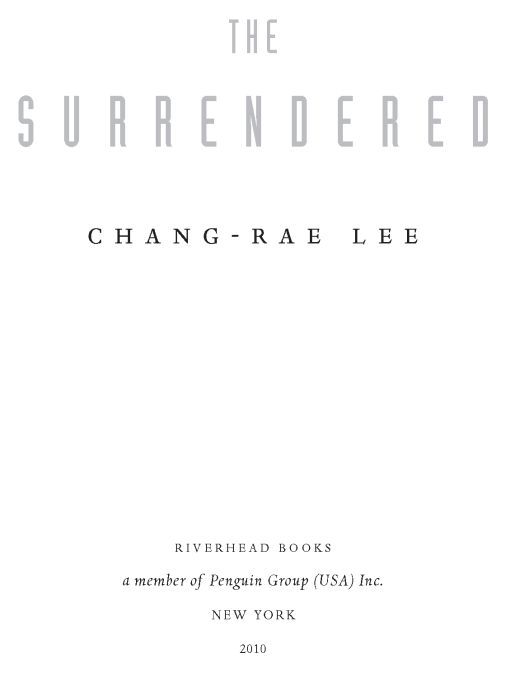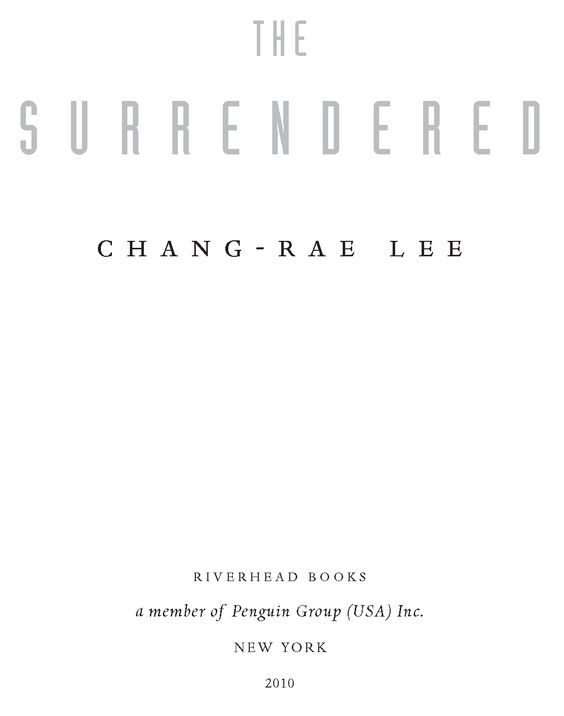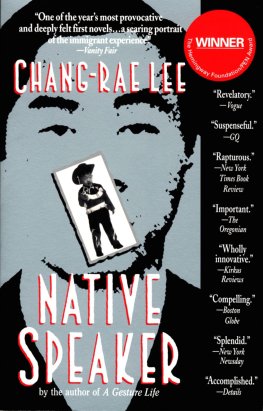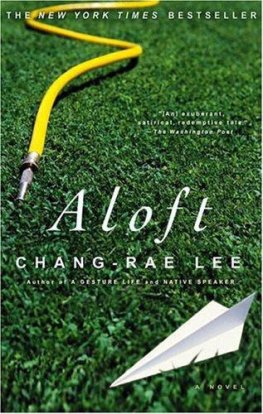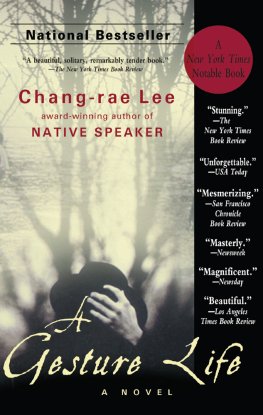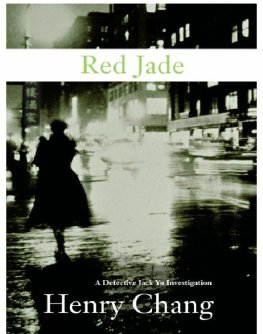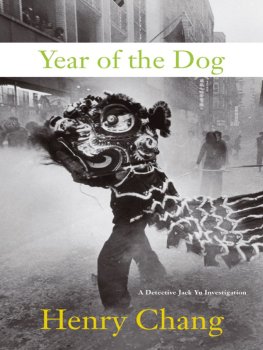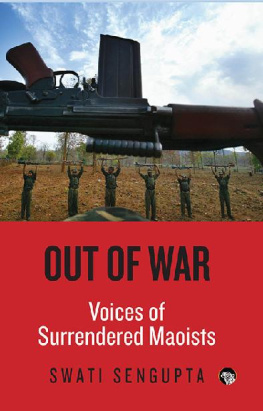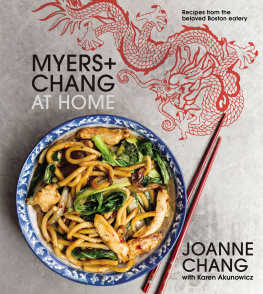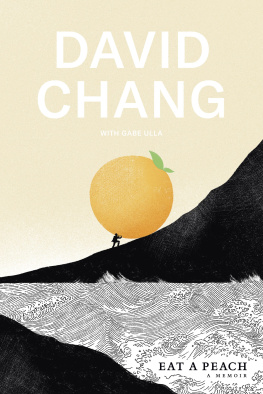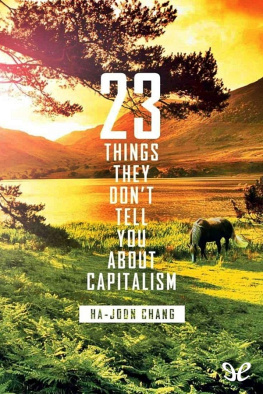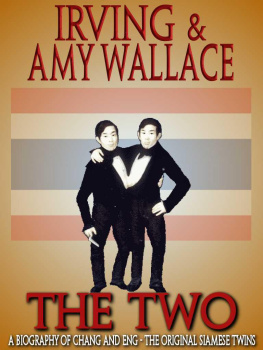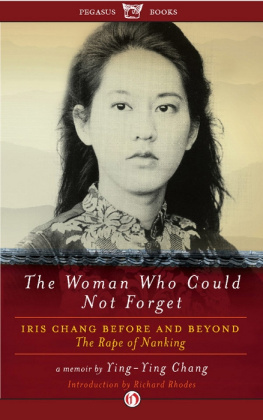Table of Contents
ALSO BY CHANG-RAE LEE
Aloft
A Gesture Life
Native Speaker
for Eunei
ONE
Korea, 1950
THE JOURNEY WAS NEARLY OVER.
The night was unusually chilly, the wind sharpened by the speed of the train as it rolled southward through the darkened valley. The cotton blanket June had stolen was large enough to spread as a tarp and at the same time wrap around her younger brother and sister and herself, but it was threadbare and for brief stretches the train would accelerate and the wind would cut right through to them. It had not been a problem the night before but now they were riding on top of the boxcar, as there was no more room within any of them, even as the train was more than a dozen cars long. A massive phalanx of refugees had met the train at the last station, and in the time it took her siblings to relieve themselves by the side of the tracks they had lost their place and had had to climb the rusted ladder between the cars, June running alongside for fifty meters until her brother was high enough on the rungs so she herself could jump up and on.
There was a score or so of people atop every car, groupings of families and neighbors, mostly women and the old and the young, and then a cluster or two like theirs, children traveling by themselves. June was eleven; Hee-Soo and Ji-Young had just turned seven. They were fraternal twins, though looked as much alike as a sister and brother could, only the cut of their hair distinguishing them. June knew they could have waited in the hope of another train with room inside but it hadnt been cold when they stopped just before dusk and she decided they ought to keep moving while they had the chance. To keep moving was always safer than lingering in one place, and there was nothing back at the depot to eat, anyway. There were a few scruffy soldiers drinking and playing cards by the depot shack, though their presence could only mean trouble, even for a girl her age. She was tall besides and she was wary of soldiers and any stray men. They were some two hundred kilometers south of Seoul, past Chongju, and June was now thinking that they would make their way down to Pusan, where her uncles family lived, though she didnt know whether they were still there, or even alive.
The train sped up on a slight decline and June curled her arm around her siblings, spooning them tightly. They lay as low as they could between the ridges of the steel roof of the boxcar. They were on the front end of the car and as such they were fully buffeted by the rushing wind. They were fortunate to have a blanket; many others on top of the cars did not. It was too early to sleep but it was cold and it was better for the twins not to be active, especially given that the two had shared only a few crackers early in the day. June herself had eaten nothing. They had eaten well the day before, as June had found, below a footbridge, a GIs abandoned pack of canned rations, a small bar of chocolate, and a sleeve of crackers. Her brother and sister were so hungry that theyd bolted down the chocolate first as June was smashing the cans open against a rock. Shed cut her finger and gotten some blood on the food but they ate it without hesitation, two tins of stewed beef and one of sardines in tomato sauce, afterward each taking a turn to lick the insides, carefully, with the deftness of cats. She made them save the crackers. Theyd been by themselves on the road since their mother and older sister were killed two weeks before, at first traveling with some people from their town but then blending in with the endless stream of other refugees moving southward along the pushed-up roads and embankments of the river valleys. At another time it might have been a pretty journey, the hills just turning the colors of pumpkin and hay and pomegranate and the skies depthless and clear, but now everywhere one looked most of the trees had been felled for fuel and there was only a hazy, oppressive brightness refracted from the shorn hillsides. There were formerly cultivated fields of potatoes and cabbages, and then the terraces of rice paddies, but all had been stripped and then abandoned during these first months of the war. The farmers houses, if they hadnt been bombed to rubble, were alternately occupied by both sides in retreat and advance, and then by passing refugees like themselves. It didnt matter that sometimes the owners were present and still living there.
A few days earlier June and her siblings had stayed a night in a house no bigger than twenty square meters with nearly thirty others, including the old farmer and his wife, who slept in the corner next to a locked chest of their things. It was raining heavily that day, and when someone spotted what looked like a house at the foot of a hill a few people began to run for it, and then others, and soon enough scores. But it was far in from the road and the three of them were fast and reached the house in the first wave. The farmer had attempted to camouflage it with a makeshift cover of netting and reeds and then appeared out front holding a pitchfork, but he pointed the tines downward when he saw it was no use. The force of numbers held for even the weak and the ragged. The crowd pushed in until the small house was full, the others having to hike back to the road and continue their sodden march.
All the farmer and his wife could do was to make certain that they themselves had a space for the night. They were shrewd to share some of their food in the hope that all of it wouldnt simply be taken. Without any prompting, his wife quickly made a large pot of barley porridge and everyone got a half-cup; the three of them had one tin mug between them and June begged the farmers wife to fill it to the brim, which she did. They took turns taking swallows while sitting jammed in among the rest of the horde, everyone sitting cross-legged and knee-to-knee. Only the smallest children could curl up or recline. Everyone was soaked from the rain, and the smell of so many wet, long-unwashed bodies in the enclosed space was fierce, the air of the single room quickly stifling and sour with an overwhelming humidity, and soon someone asked June to open the window, which was right above them. After eating, she took out a tortoiseshell comb of her mothers and ran it through her siblings hair; she had noticed before the rain began in the morning how whitish their heads appeared and so combed through to remove the sheets of clinging lice. She flicked them out the window. It was futile work, of course, for she had no special soap to kill the eggs and they would simply multiply, besides the fact that the other people there were equally infested, but now that her mother and older sister were gone it was she who had to keep the little ones safe, keep them as sound as she could, and so whenever she had a chance June wiped their faces, or rubbed their teeth and gums with mint leaves, fed them whatever she could scrounge or barter for, offering them as much as she could without growing too weak herself.
She was always a responsible, filial daughter and, as she was closest in age to the twins, had looked after them for as long as she could remember. It happened that her older brother and sister were also twins and their family had always seemed to comprise her parents and just three children, instead of five, June ever slightly removed from their naturally unitary play. It was a system of orbit that had seemed unlucky to her at first but in fact suited her burgeoning character, something her gentle, thoughtful father recognized. He was a respected school-teacher in their town, and he often told her that there was great strength in her singularity, that she ought to revel in it, an idea that she would see as bitterly ironic years later, when he was falsely denounced as a Communist in the first disastrous, terrifying days of the war.

